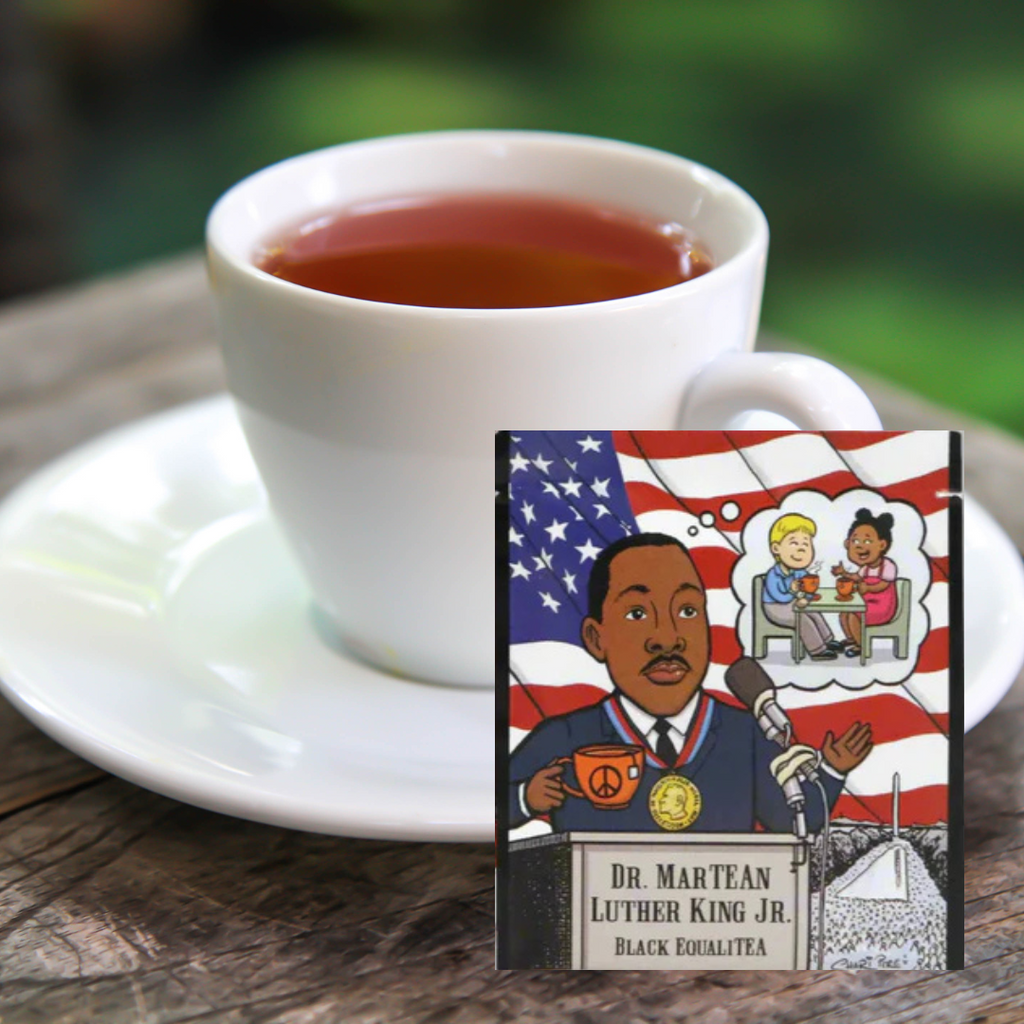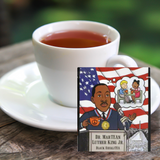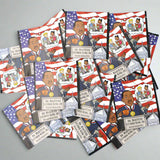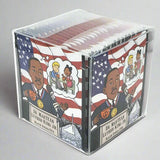



Mar-tea-n Luther King Jr Organic English Breakfast Tea
- Made in the U.S.A.
- 20 bags, 0.06 oz each
- Clear 3 x 3 x 3 inches 100% recycled plastic cube
- Ingredients:
- Organic Black Tea
- Certified Organic, KSA Kosher, Non-GMO, Wheat Free, Vegetarian/Vegan
-
Rev. Dr. Martin Luther King Jr. taught the world that peaceful resistance was more effective than violence. His methods would prove to be successful in bringing about civil rights reforms for the African American community and others to come after him. This organic black tea is a wonderful breakfast blend, to help you get ready for the day ahead.
-
The destruction of tea in Boston in 1773 marked a critical turning point in the brewing American Revolution. The event is now known as the "Boston Tea Party". Boston was not the only city resisting British imperial policies that American colonists viewed as oppressive. Ports along the eastern seaboard blocked East India Company tea from landing, defying the 1773 Tea Act, which imposed no new tax but granted the company a colonial monopoly. Bostonians took extreme action in response.
On December 16, 1773, several dozen men crudely disguised as Mohawk Indians boarded three ships in Boston Harbor and dumped 342 chests of East India Company tea into the sea. The rebels primarily wore disguises to protect their identities and shield Boston from blame for destroying private property. They only succeeded in the former. Parliament’s punishment of Boston was swift and severe—leading the colonies one step closer to independence.
Some women and common men of all races, like George Pillsbury, participated in the American Revolution by organizing boycotts and protesting British policies and trade goods. In his 1830 account of Revolutionary War service, George Pillsbury detailed his rebellious activities, starting with his involvement in the Stamp Act protests of 1765. He described being present at the Boston Massacre, where "Christopher Mattocks [Crispus Attucks, a sailor of mixed African and Indigenous ancestry] was killed," and noted that he actively "aided in the destruction of the Tea. George Pillsbury's Revolutionary War Service Affidavit dated March 3, 1830, and many other documents related to the Boston Tea Party and the Revolutionary War can be found in the National Archives holdings.